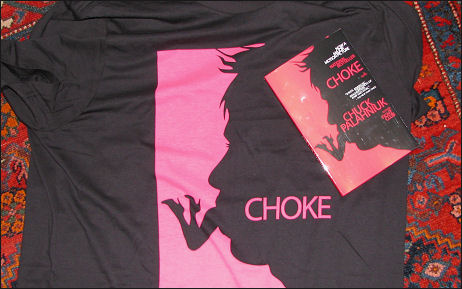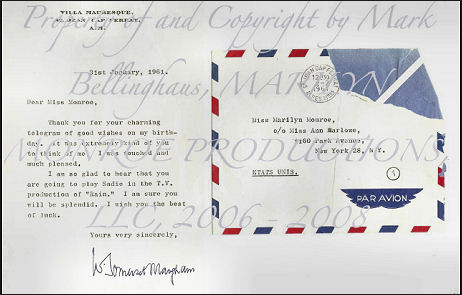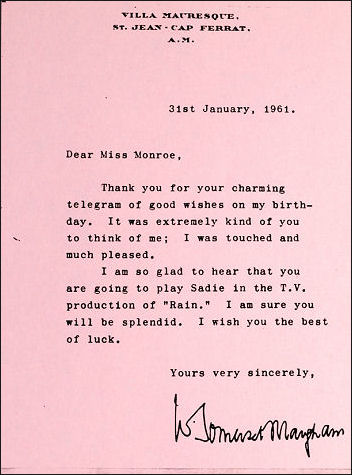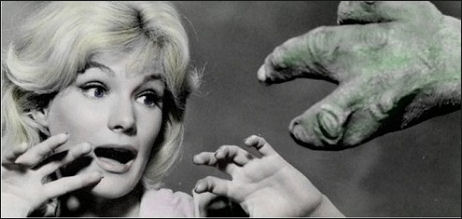“And finally, white privilege is the only thing that could possibly allow someone to become president when he has voted with George W. Bush 90 percent of the time, even as unemployment is skyrocketing, people are losing their homes, inflation is rising, and the U.S. is increasingly isolated from world opinion, just because white voters aren’t sure about that whole ‘change’ thing. Ya know, it’s just too vague and ill-defined, unlike, say, four more years of the same, which is very concrete and certain.” — from a 9.13 essay by Tim Wise called “Your Nation on White Privilege.”
Day: September 16, 2008
Impatience
If Barack Obama does his carefully parsed cool-cat Fred Astaire zen routine when he debates John McCain — if he plays it nice and mild-mannered and implies what he means as opposed to using simple declarative terms — then maybe the world really is screwed and he just doesn’t have the stuffing to shoot and slay when he has to.
Allen + Puccini
Woody Allen “might not be the right director for Otello or Salome. But in Gianni Schicchi, a brisk farce about an Italian family desperate to circumvent a dead relative’s will, Allen found a playground in which his comic talents could run riot.
“The opera is set in medieval Tuscany, but Allen moved the action up to the 1940s. Santo Loquasto‘s exuberant set looked like a manic fusion of palazzo and tenement, while also evoking the neo-realist look of Italian films from that era.
“Greed, vanity and cunning rule this opera, and Allen [has] found endless clever ways to expose and mock these traits.” — from Robert Everett-Green‘s review of the third act of Puccini’s Il Triccico, now at the Los Angeles Music Center.
Wonders Never Cease
This is not a significant thing, but on an insignificant level I thought I’d report that this Choke T-shirt is the first one I’ve ever received in my 15-plus years of receiving free-T-shirts that I’d consider wearing, due to the fact that it’s not a schlubby low-thread-count Hanes T-shirt with a dork collar but a high-thread- count one with a semi-slim European cut. Close to astonishing, given the history. Fox Searchlight will release Choke on 10.3.

Alleged Flim-Flammery
A Los Angeles-based collector of Marilyn Monroe memorabilia named Mark Bellinghaus is claiming that photographs and descriptions of various stored-away Monroe letters, jewelry and keepsakes in this month’s Vanity Fair are to some extent bogus, particularly in the matter of a letter sent by W. Somerset Maugham to Monroe in January 1961.

A scan of an allegedly authentic January 1961 letter sent by W. Somerset Maugham to Marilyn Monroe.
Bellinghaus is calling the Monroe article and photo spread a “hoax,” although he told me this morning that some of the materials, all of which are from a collection owned by another Southern California collector named Millington Conroy, are authentic and legitimate. But many or most of them aren’t, he claims.
Vanity Fair spokesperson Beth Kseniak wasn’t up to speed on the matter and said she’d get back to me tomorrow.
An article by Sam Kashner called “Things She Left Behind” and an accompanying photo piece called “The Marilyn Papers” reviews all the Monroe materials found and recently revealed in two filing cabinets.
I also wrote Kashner about this, to no response.

Vanity Fair‘s photo of an identically-worded January 1961 letter, also allegedly sent by W. Somerset Maugham to Marilyn Monroe. Bellinghaus claims the pink Somerset letter is a fake.
“I’ve read the claims by Bellinghaus about the VF Marilyn Monroe article,” I wrote, “and without getting into a whole big rigamarole he has made a legit-sounding claim that the pink Somerset Maugham letter printed in the magazine (and on the VF website) is bogus and that the white-colored one he owns (including the envelope), which he says he purchased at a legit auction and has been somehow verified as the real deal, is legit.
“Leaving aside the tons of material that Bellinghaus claims is illegitimate, what do you and VF have to say about the Maugham letters? I’m publishing something on HE about this very soon. Do you mind getting back quickly?”
I told Bellinghaus that he isn’t helping his assertions any by misspelling the name “Somerset,” which he spells in his letter with two “m”s.
Skip These Guys
If you’re looking for definitive proof of how our culture (and particularly our film culture) is steadily devolving and dumbing itself down, check out the new Ben Lyons-Ben Mankiewicz version of “At The Movies“, which premiered a few days ago. This is not a TV show about how good or bad the latest movies are. It’s a show about the End of Civilization as some of us have known it. If the Eloi of George Pal‘s The Time Machine were to produce their own movie-review show, this is how it would play.
The Two Bens’ views on Burn After Reading pretty much say it all.
The whole show feels way too rushed — the producers apparently said to everyone involved, “Just keep it simple and keep your foot on the accelerator and take no detours.” The show is obviously aimed at under-35 morons who just want to see a few clips and maybe absorb a couple of fast cracks before they channel-surf onto the next distraction.
Lyons is the glib lightweight — one of those empty but sociable motor-mouths for whom the expression “if I ever have an original thought it would die of loneliness” was originally coined. Mankiewicz is clearly the more thoughtful and reflective of the two, but he’s been told by the producers to repress his natural instincts and to keep things fast and shallow.
Don’t even think of comparing this to the original Roger Ebert-Gene Siskel show of the ’70s, which was primarily aimed at people who (a) read movie reviews on occasion, (b) had at least a couple of years of college under their belt, and (c) actually liked movies as experiences with all kinds of layers and echos and reflections contained within. The Two Bens show is aimed at the apes.

Yvete Mimieux as “Weenah,” the prettiest and most obviously sexual “Eloi” in George Pal’s The Time Machine.
Ask yourself this — if and when a subsequent “At The Movies” show is produced for the 2025 generation (i.e., 17 years hence), how can it be more dumbed-down than the current one? I’m going on the assumption that each generation henceforth is going to be less educated, less literate, less worldly, more ADD, more into video games, less cultured, less travelled, etc.
Variety‘s Anne Thompson hates the show also.
“What Size Is That Suit?”
Being longer and whatnot, this is a much fuller taste of Scott Derrickson and Tom Rothman‘s The Day The Earth Stood Still (20th Century Fox, 12.12) than the trailer that appeared a few weeks back. I’m cranked, but at the same time vaguely depressed that no one in this town seems the least bit interested in depicting the arrival of a great and powerful alien spaceship without summoning memories of Steven Spielberg‘s Close Encounters of the Third Kind (and, to a much lesser extent, Roland Emmerich‘s Independence Day).
Indeed, TDTESS seems to be literally flaunting its Spielbergian-ness. The question is why? Why do such stories have to be depicted with the totally cliched visual sensibilities of a once-great director whose hot wunderkind period peaked 25 years ago? It’s like we’ve all been sentenced to a life-without-parole term in Spielberg prison, located in upstate New York. Think of the tingly excitement if this film had used another kind of film language, another set of references. But no — the masses have to be drugged and placated.
Just as tourists are offered the chance to stay in corporate Ramada Inn-style hotels when they visit Prague or Dubrovnik or Tel Aviv, 20th Century Fox is telling moviegoers that they will not be challenged in the least, that they have nothing unusual to fear, that TDTESS will be — trust us — just another family visit to Spielbergland in Orlando. (Thanks to Brad Brevet‘s Rope of Silicon for the embedded code to the new product reel.)
Official Selection
Uli Edel‘s The Baader Meinhof Complex, the terrorist drama I wrote about yesterday, has been selected as Germany’s candidate for the Best Foreign-Language pic Oscar. Produced and adapted by Constantin Film’s Bernd Eichinger, the period drama is based on Stefan Aust‘s book about the New Left gang of commie-guerilla outlaws who kicked up dust from the late ’60s to mid ’70s.

